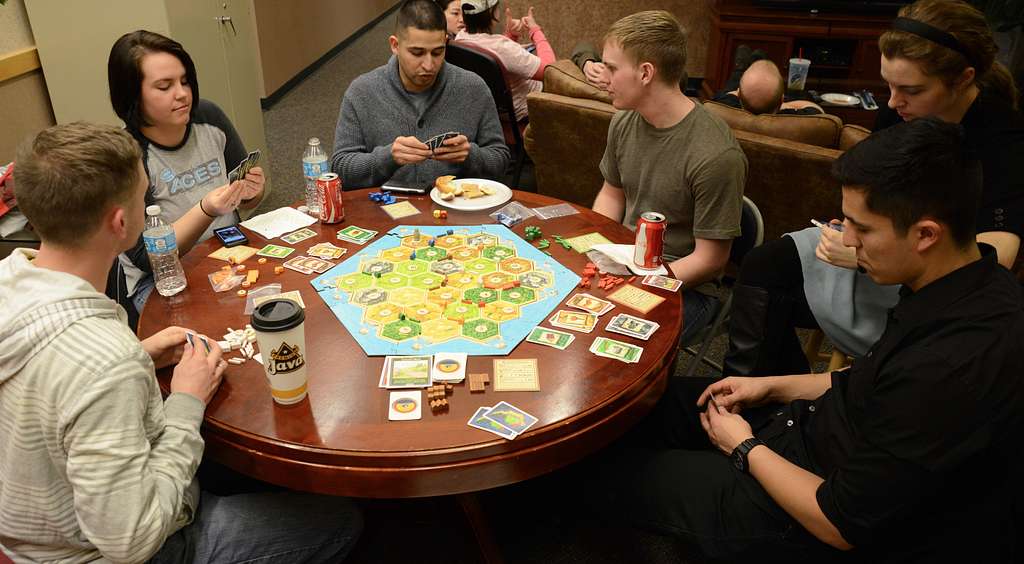The world of board games is vast and diverse, with a spectrum of options ranging from timeless classics to immersive big box games. For many enthusiasts, the choice between a classic game and a big box game boils down to personal preference and the type of gaming experience they seek. While classic games like Monopoly, Rummikub, and Sorry! offer straightforward, competitive fun, big box games like Betrayal at House on the Hill, Cosmic Encounter, and DC Deck-Building Game provide deep, immersive experiences that captivate players.
In our recent podcast episode, we delved into this very topic, exploring the distinctions between classic and big box games. We discussed why some gamers gravitate toward the simplicity and nostalgia of classic games, while others are drawn to the complexity and immersion of big box games. Our conversation highlighted that the preference often comes down to the kind of engagement and enjoyment one seeks from a board game.
This article aims to further that discussion, breaking down what defines a big box game and a classic game, comparing and contrasting the two, and examining why different types of gamers might prefer one over the other. Let’s dive in and explore the unique characteristics and appeal of both game types.
What is a Big Box Game?
Big box games are known for their elaborate components, intricate mechanics, and immersive storytelling. These games often come in large, hefty boxes filled with a variety of pieces, including miniatures, detailed boards, and numerous cards and tokens. The term “big box” not only refers to the physical size of the game but also to the expansive and engaging nature of the gameplay.
A prime example of a big box game is Betrayal at House on the Hill. This game invites players into a haunted house filled with mystery and danger, where they uncover secrets and confront supernatural threats. The game’s narrative-driven structure and dynamic board setup create a unique experience every time it’s played. Similarly, Cosmic Encounter offers a rich strategic experience with its numerous alien species, each bringing unique abilities to the game, making every encounter different and unpredictable.
The immersion that big box games provide is a significant draw for many players. These games often require a longer time investment and a willingness to dive deep into the game world. The payoff is a richly rewarding experience that can transport players to new realms and offer memorable adventures. For those who relish complex strategies, detailed stories, and the tactile joy of handling numerous game components, big box games are an enticing choice.
What is a Classic Board Game?
Classic board games have earned their status through years of consistent popularity and widespread appeal. These games are often characterized by their simplicity, competitive nature, and ease of play, making them accessible to a broad audience. They typically feature straightforward rules that can be quickly understood, allowing players to jump right into the action.
Monopoly, for example, has been a staple in households for generations. Its basic premise of buying, trading, and developing properties to bankrupt opponents is easy to grasp yet offers strategic depth that can engage players of all ages. Rummikub, another classic, combines elements of rummy and tile-based gameplay, providing a fast-paced, competitive experience that’s easy to learn but challenging to master.
The competitive nature of classic games is a defining feature. Games like Sorry! and The Game of Life are built around player interaction and competition, with clear winners and losers by the end of the game. These games often foster a sense of nostalgia, as many players have fond memories of playing them with family and friends. Their enduring popularity speaks to their ability to bring people together and create enjoyable, repeatable experiences.
Comparing and Contrasting Big Box and Classic Games
When comparing big box games to classic games, several key differences and similarities emerge. Big box games tend to focus on immersion, storytelling, and complex mechanics, appealing to players who enjoy detailed narratives and strategic depth. Classic games, on the other hand, emphasize straightforward rules, competitive gameplay, and accessibility, making them suitable for a wider range of players.
One of the main reasons someone might prefer big box games is the immersive experience they offer. Games like Imhotep, where players take on the roles of ancient Egyptian architects, or the DC Deck-Building Game, where players become iconic superheroes, provide rich thematic content that can captivate and transport players. The complexity and depth of these games require a greater investment of time and effort, but the reward is a deeply engaging experience that can be highly satisfying.
Conversely, classic games are often preferred for their simplicity and ease of play. These games are typically quicker to set up and play, making them ideal for casual gaming sessions or family gatherings. Their competitive nature can be a significant draw for players who enjoy head-to-head challenges and clear-cut victories. The familiarity and nostalgia associated with classic games also play a crucial role in their enduring appeal.
While both types of games offer unique experiences, the choice between a big box game and a classic game ultimately comes down to the kind of enjoyment one seeks. Some gamers might relish the complexity and immersion of big box games, while others might prefer the straightforward, competitive fun of classic games. Both have their place in the world of tabletop gaming and can provide memorable and enjoyable experiences.
Conclusion
The debate between big box games and classic games is a testament to the diversity and richness of the tabletop gaming world. Big box games, with their immersive narratives and complex mechanics, offer deep, engaging experiences that can transport players to new realms. Classic games, with their simplicity, competitive nature, and accessibility, provide timeless fun that can be enjoyed by players of all ages.
Ultimately, the choice between a big box game and a classic game comes down to personal preference and the type of gaming experience one seeks. Whether you prefer the strategic depth and thematic richness of a big box game or the straightforward, competitive fun of a classic game, there’s no denying that both have their unique charms and appeal. In the end, the best game is the one that brings joy, excitement, and memorable moments to the players around the table.


Leave a Reply